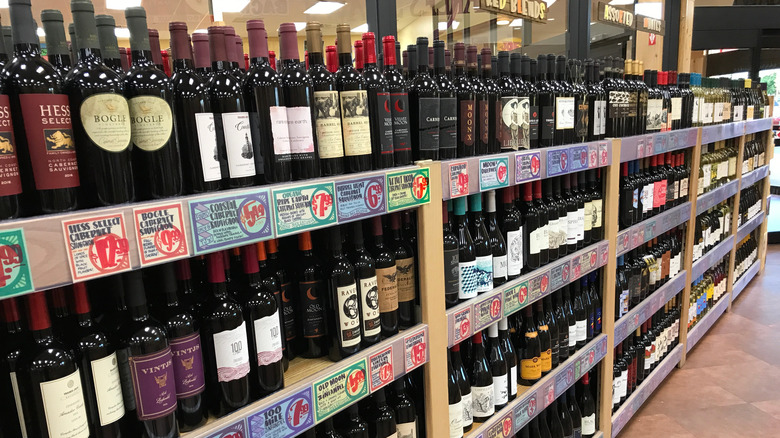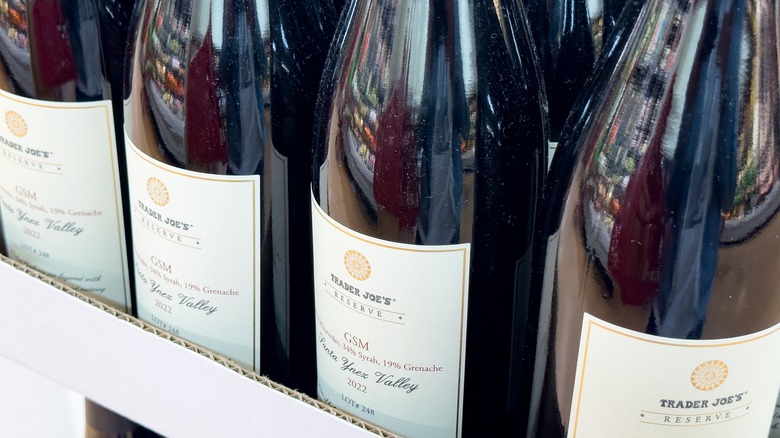Why We'll Probably Never Know Who Makes Trader Joe's Wines
Thanks to Trader Joe's, many are able to try incredible wines without breaking the bank. Buying an excellent bottle with a "reserve" label can be achieved for as little as $10. How is this possible? The origins of Trader Joe's private label are shrouded in mystery. The label shares the grape varietals, the flavor notes, and the region it hails from — but the grocery chain avoids sharing explicit details of who the winemaker is. By keeping this information concealed, Trader Joe's keeps the price low.
Trader Joe's sources its wine from winemakers that other — often more expensive — labels also work with. Tara Miller, one of the hosts of the "Inside Trader Joe's" podcast, shared in Episode 42, "If we say who they are and then we offer this great price, the other folks they do business with they're going to want that same great price, right? And they might not understand all of the other pieces of work that go into us being on the receiving end of such a great price." Later, on Episode 57 of the Trader Joe's podcast, a store manager from a Santa Barbara location illustrated this by explaining that a bottle of Grand Diamond Reserve, a top-tier wine of the grocer's private label, costs $19.99. With another label, this same bottle of wine could cost anywhere from $60 to $80.
Why Trader Joe's wine has a low price tag
Trader Joe's can offer excellent wine at an affordable price because using its own label eliminates the need for costly marketing and brand-building efforts that other labels require. The chain doesn't need to secure new customers; it already has a reputation for supplying great wine. That's not the only way it keeps things down to earth either. Trader Joe's chooses what wine to sell by letting employees try different options before the bottles are stocked.
Wine with a low price tag is often assumed to be low quality, but this doesn't hold true for Trader Joe's wine. Customers are aware that the grocer's private label comes from impressive winemakers, which translates into rock-solid trust of its quality. Moreover, the location of a wine can be a flag for its quality; the more vague it is, like an entire state or country, the more likely it is to be subpar. In contrast, Trader Joe's private labels list specific, world-renowned winemaking regions, like UCO Valley in Mendoza, Argentina, or Oakville in Napa Valley, confirming their legitimacy.
There is one Trader Joe's wine with a known winemaker, though: "Two Buck Chuck." Although the bottle is branded with a Charles Shaw label, this wine is made specifically for the grocer by the Bronco Wine Company.

